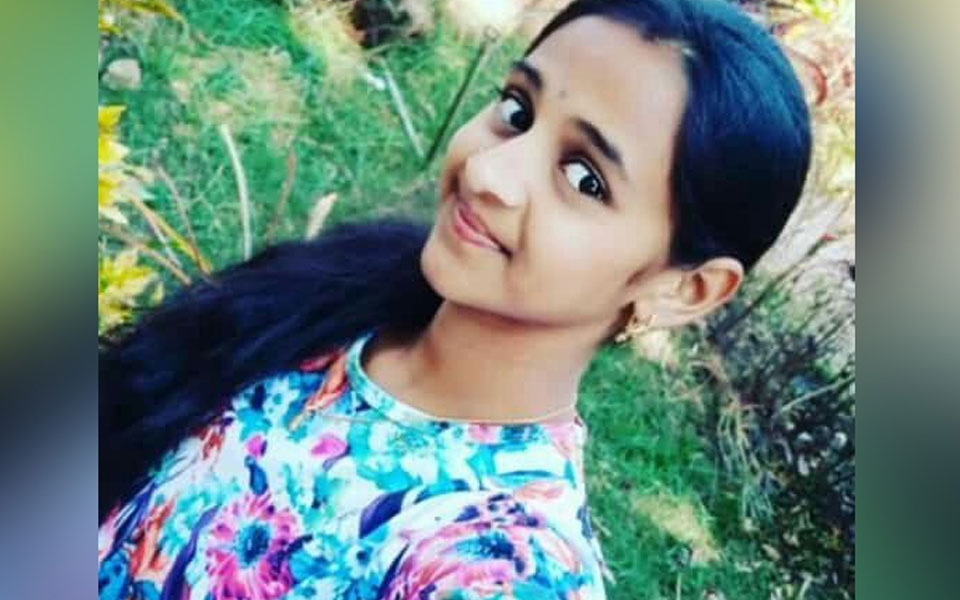HAVERI: The dead body of a PU-2 student of KLE’s Gudleppa Hallikeri College has been found at a bush near Varadahalli Bridge on the National Highway 4.
The deceased has been identified as Renuka Patil (17), a resident of Mannur village in Savanur taluk. She was studying in the second PU commerce at GH College.
Renuka, who had gone to college on August 6, did not return home. Renuka's brother and sister were also studying in the Gudleppa Hallikeri College. The sister had not gone to college due to some work. Her brother was studying in Arts and returned home early because he had no classes. When Renuka did not return ever after the late evening, the family members started calling her friends and relatives. When they received negative answers, her parents filed a complaint with the Haveri rural police.
Renuka was not found even when Police and family members searched for her. But, a young woman's body was found at a bush near Varadahalli Bridge on the National Highway 4. When the police informed the parents to recognise the dead body, they broke down. Later, her grandfather went with the police and identified the body.
SP Parashuram, DySP Kumar, and Haveri rural police have visited the spot, and the investigation is on.
Rape and murder suspected
It has been suspected that while returning from college on August 6, miscreants abducted Renuka and dragged her into a bush near Varadahalli Bridge and raped her. The perpetrators later burned and murdered her to destroy evidence.
While some clues in this connection have been gathered, we have intensified the operation by creating three teams led by DySP Kumarappa, DCRB DYSP Narayana Baramani and DCIB Inspector Santosh Patil of Haveri.
Parshuram, SP
Let the Truth be known. If you read VB and like VB, please be a VB Supporter and Help us deliver the Truth to one and all.
Bengaluru (PTI): The Karnataka government has issued directions to municipal corporations across the state to regulate and prohibit feeding pigeons in public places, citing serious public health concerns.
Deputy Secretary to Government V Lakshmikanth has written to the Urban Development Department requesting it to issue directions to the Greater Bengaluru Authority (GBA) and all municipal corporations to take immediate steps to implement the measures.
In an official note dated December 16 issued by the Health and Family Welfare Department and released to the media on Wednesday, the department said uncontrolled feeding of pigeons in public places has resulted in large congregations of birds, excessive droppings and serious health concerns, particularly respiratory illnesses linked to prolonged exposure to pigeon droppings and feathers such as hypersensitivity pneumonitis and other lung diseases.
ALSO READ: Chinese GPS tracker found on seagull near Karwar Coast
"The commissioner, the Greater Bengaluru Authority and the Commissioners and chief officers of other municipal corporations shall take necessary action to mitigate the causes of dangerous disease spread by pigeon and enforce specified guidelines in their respective jurisdiction," the note said.
According to the department, these include a prohibition on feeding pigeons or causing pigeons to be fed in areas where it may cause nuisance or pose a health hazard to the public. Pigeon feeding shall be permitted only in designated areas in a controlled manner, subject to certain conditions.
"The designated areas may be selected in consultation with stakeholders. The responsibility for upkeep of the designated areas and compliance to the directions shall be taken up by some charitable organisation or an NGO. The feeding in designated areas shall be permitted only for some limited hours in the day," it said.
The note further stated that authorised officers of local authorities shall issue on-the-spot warnings and may impose fines for violation of the order, or lodge complaints to prosecute offenders under Sections 271 (Negligent act likely to spread infection of disease dangerous to life) and 272 (Malignant act likely to spread infection of disease dangerous to life) of the Bharatiya Nyaya Sanhita.
It also directed local authorities to conduct public awareness campaigns, including the display of signboards, banners and digital messages, explaining the health hazards associated with pigeon droppings and feathers, the content of the regulatory directions and penalties for violations, and alternative humane methods of bird conservation that do not endanger public health.





